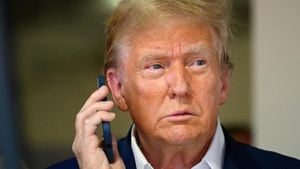Saudi Arabia's Public Investment Fund (PIF) recently made headlines by selling off $1 billion worth of stock from its largest mobile phone operator, Saudi Telecom Co. This significant stock sale is seen as part of the broader trend of increased secondary share offerings across the Middle East. Following this transaction, experts predict more such sales will occur as sovereign wealth funds seek to finance ambitious economic transformation plans.
The sale of the 2% stake marks just one piece of the puzzle amid the PIF’s strategy to bolster funds for its Vision 2030 initiative—a massive plan aimed at diversifying the economy away from oil dependence. Earlier this year, the PIF also participated in other notable secondary sales, including Saudi Aramco and Adnoc Drilling Co., raising approximately $12 billion and $900 million respectively.
During the past few years, the Middle East, particularly the Gulf region, has witnessed a flurry of initial public offerings (IPOs). Despite the IPO rush, secondary sales have not kept pace until recently. "Until now, the secondary share sales have lagged the rest of the world, but due to recent market movements and increased discussions around equity sales, we are now seeing more activity," said Prasad Chari, the head of equity capital markets at Emirates NBD.
Secondary share sales have dual benefits. Firstly, they increase the liquidity of the stock, enabling more trading activity. Secondly, they give investors who might have missed out during overly subscribed IPOs another chance to invest. For example, shares from both Adnoc Drilling and Saudi Telecom experienced slight dips post-offering, yet they have gradually recovered over time.
The stakes held by the PIF transcend many sectors. It owns about 16% of Aramco, valued astonishingly at roughly $290 billion. Alongside this, the fund has interests worth around $200 billion across various industries including healthcare, banking, and utilities, aiming to enrich the country’s economic fabric.
But it’s not just Saudi Arabia making strides forward. Neighboring countries are also pursuing privatization programs, aiming to increase the number of publicly listed companies. Notable examples include Dubai's actions of listing its water and electricity utility companies, alongside Oman, which has presented listings for its gas networks.
Investment experts, like Ramzi Sidani from HSBC Global Asset Management, are anticipating follow-on offerings from various companies. "There is definitely interest from us for names across the Adnoc group or potential opportunities with Dubai utilities. If these are offered at attractive prices, they’re worth serious consideration," he explained.
Margins of success are evident with equity sales becoming integral to the PIF's finance strategy. The increased interest from various players suggests the region is ripe for more activity aimed at sustaining its economic growth goals.
At this juncture, the rising appetite for secondary sales could signal not only enhanced liquidity but also improving confidence among investors. The upcoming months will reveal whether the region can sustain this momentum or if it will level off as it progresses through economic challenges and opportunities.



